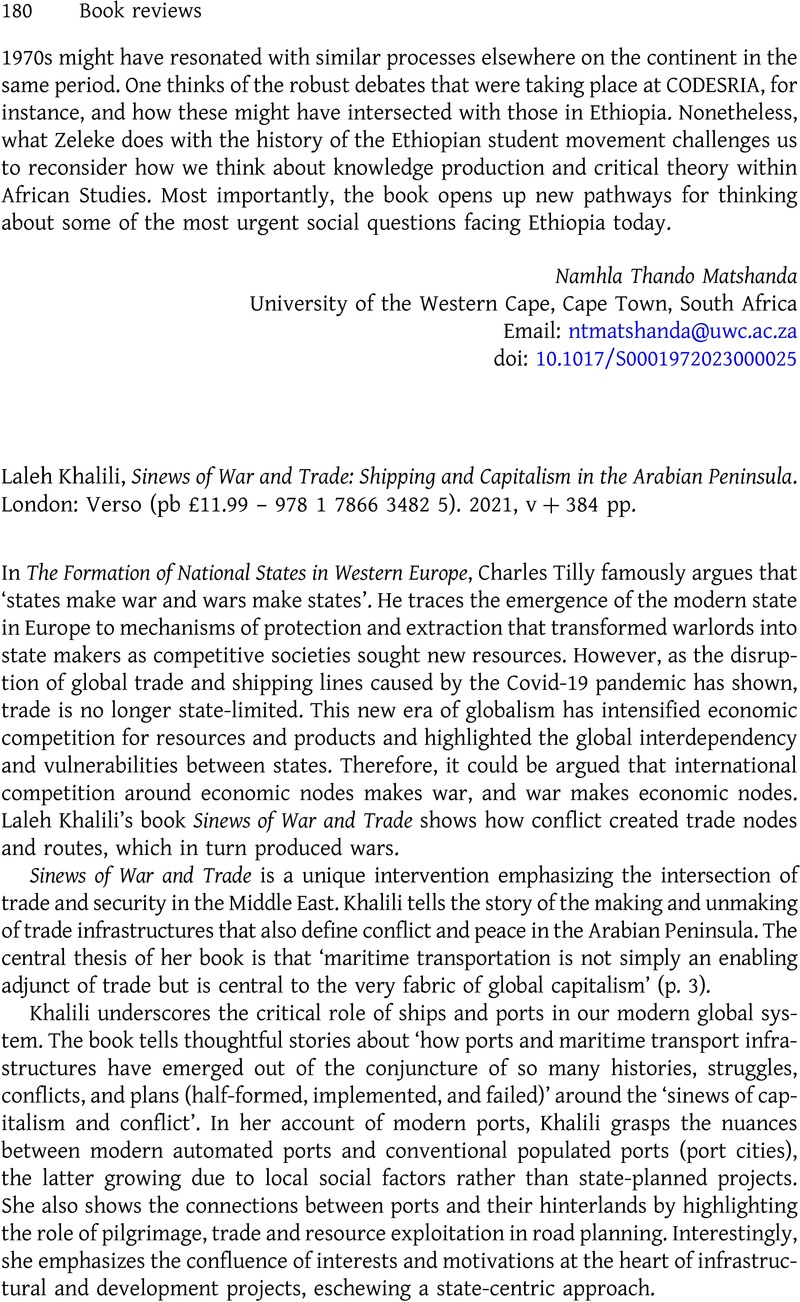No CrossRef data available.
Laleh Khalili, Sinews of War and Trade: Shipping and Capitalism in the Arabian Peninsula. London: Verso (pb £11.99 – 978 1 7866 3482 5). 2021, v + 384 pp.
Review products
Laleh Khalili, Sinews of War and Trade: Shipping and Capitalism in the Arabian Peninsula. London: Verso (pb £11.99 – 978 1 7866 3482 5). 2021, v + 384 pp.
Published online by Cambridge University Press: 30 March 2023
Abstract
An abstract is not available for this content so a preview has been provided. Please use the Get access link above for information on how to access this content.

Information
- Type
- Reviews
- Information
- Copyright
- © The Author(s), 2023. Published by Cambridge University Press on behalf of the International African Institute


